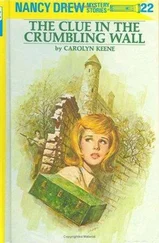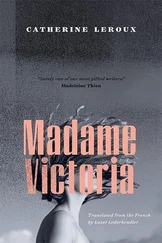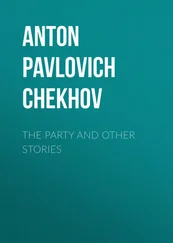“Things are looking up for your son?”
“Yes. Sort of. But they still haven’t found a donor. And you? Your bees?”
“Can’t find them anywhere. Luckily I still have the horses.”
He lights a cigarette, not so much for him as for Madeleine, who likes to snatch a few puffs from him.
“I’ve heard you’ve been taking naps at the foot of the lighthouse these days.”
“Occasionally,” Madeleine answers, irked by how swiftly rumours travel on the peninsula.
“You know, if you’re having trouble sleeping, you should spend the night here. I can rub your back.”
In response to this recurring offer, Madeleine bites her lip. Groping about in the dark, she finds her clothes and gets dressed.
“Not tonight. I have to see my son.”
Paul hugs her without a hint of resentment. The reasons she comes back to his house are the same as those that keep her from staying. She walks to her car in the beam of his flashlight and drives away without turning on her headlamps.
On arriving home, she finds the household asleep. From the corridor she can distinguish Édouard’s hurried breathing alternating with Yun’s, which is slower. Joanna’s dry snoring on the ground floor adds to these sounds, to all this disparate humanity woven together by breath.
Carrying the letter from the laboratory, Madeleine tiptoes into the room and kneels down by her son’s bed. She is reminded of Micha, an atheist through and through, but who persisted in bowing down at the foot of the bed each night, lowering his head, pressing his hands together, and silently formulating requests he shared with no one. Madeleine liked to believe that in doing so he was wrapping a sort of magical armour around his little family. After he died she realized he had excluded himself from his petitions.
In the half-light, the two bodies turn around in perfect symmetry. Madeleine leans toward Édouard and murmurs a few barely audible words into his ear. Then she places the letter on the nightstand and cautiously straightens up. She has already gone out by the time Édouard’s fingers stir and flit toward the sheet of paper left next to him. He heaves a sigh that releases what looks like blue smoke into the room. But no one can see it.
The toaster ejects the browned slices of bread. On either side of the table, Madeleine and Édouard sip the contents of a seemingly bottomless teapot. Now that the turmoil whipped up by the DNA question has passed, they are once again mother and son sharing breakfast with their noses buried in newspapers, moving silently through the morning, living without looking at each other. Yet Madeleine feels something ought to be said now, and she searches through the inept articles and ads of the dailies to find words that may help her to speak about pain, tiredness, kidneys, and death. But such things are not to be found in Section B of the weekend edition. She rises, picks up her son’s empty plate, and, in passing, gently strokes the endless braid floating down along a spindle of his chair. He starts and pulls his braid onto his chest:
“Stop that, Ma.”
Madeleine hurries over to the sink. She tries to set the dishes down softly but the cutlery drops with a clatter. Why is something supposedly easy so complicated with Édouard? He stands up waving the newspaper as if he wanted to change the subject even though nothing has been said.
“The inauguration of the Confederation Bridge takes place in a few days. I can’t believe I’m going to miss it. I promised myself I’d be the first to walk across.”
“I don’t think they’ll allow pedestrians across. And this is a bad time to wear yourself out.”
“It makes me sick.”
Madeleine squirts some detergent into the rising water of the sink. She dips her hand in to fish out a spoon. The water is too hot.
“Yes, I know. Me too.”
A quarter of an hour later, the newspaper pages are still turning lazily when Yun bursts breathlessly into the room, her body peppered with white paint. Her gaze shifts from mother to son and her face becomes a mask of perplexity.
“What’s the matter? You both look paralyzed!”
Édouard gets up and ushers his lover into the living room, leaving Madeleine alone with her fingers soaking in soapy water. From the next room, Yun’s voice chimes out as if it were passing through Édouard’s hand.
“You are so weird, the two of you!”
Some conspiracy theorists had crammed his head full of stories about extraterrestrials, so he decided to follow a small group of unemployed circus performers to Nevada. After setting his tent up on a makeshift campsite alongside some twenty other people, he spent the week a few kilometres from Area 51, scanning the sky in search of confirmation. But the power of desert legends resides in their never being proved. They hover at ground level to throttle the ankles of hikers, who lose their appetites and their sleep until they go insane.
One night a purple-haired girl pulled out of her gear an enormous bag of mushrooms that she had personally gathered in the Rockies. Édouard swallowed three disgusting, still-moist boletuses. After a few hours of seeing stars dance and his friends’ limbs get twisted out of shape, he made up his mind to go strolling by himself in the surrounding moonscape. Wonderment soon turned into terror. Every glimmer, every rustle became a monster skulking in the Mojave night, ready to abduct him, to dissect him, to probe the stillness of his human body and of his brain harnessed to desperately futile goals.
Curled up against a porous rock in the foetal position, for many hours he begged to be spared and left in peace on his stunted planet. But the terror persisted. So he resolved to make his way back to the campsite, where he hoped to find solace in the arms of a girl with, or without, purple hair. For a long time he walked in concentric circles, unable to get back to his starting point. It was then he spotted, right there in the middle of nowhere, a phone booth that appeared to be waiting for him alone. Instinctively and with underwater slowness, he dialled the one number he knew by heart: his mother’s. She was the only one who could comfort him at that instant, the only one whom he could tell that he was more than ever lost and ask how to find his way again.
The telephone rang for a long time, and Édouard sank into the recurrent dream he had had since leaving home, in which he would call there but was unable to open his mouth, so that when he heard his mother saying “Hello? Hello?” he couldn’t manage even the slightest response. This time, though, the opposite happened. Someone picked up the receiver but did not speak. From the calm breathing at the other end Édouard guessed it was Madeleine. He began to recount his night, the bonfire, the mushrooms, his walk and his going astray, until he eventually broke into tears, overwhelmed by memories — his father’s face, the garden when he was a child, the air along the Acadian Shore, and the time when it was so easy to be someone’s son.
When he had finished his monologue he waited for an answer that never came. But just before hanging up, he thought he heard the faint vibrations of a foghorn. When he stepped out of the booth dawn was breaking with lavish gestures, stretching its pink, blue, and orangey fingers over the desert. In the distance he could make out the campsite. Madeleine never mentioned that call. A few years later, the Mojave phone booth would be disconnected for good.
Nothing has been neglected. Her hair and blood, again, but also cells from her mouth and skin, not to mention biopsies of her uterus and thyroid gland. She even noticed that one of the three doctors studying her case was gazing covetously at her teeth. With her jaws resolutely shut, she let them take whatever was necessary to solve the enigma of her body. Madeleine leaves the hospital feeling like a fruit that has been pressed dry.
Читать дальше











